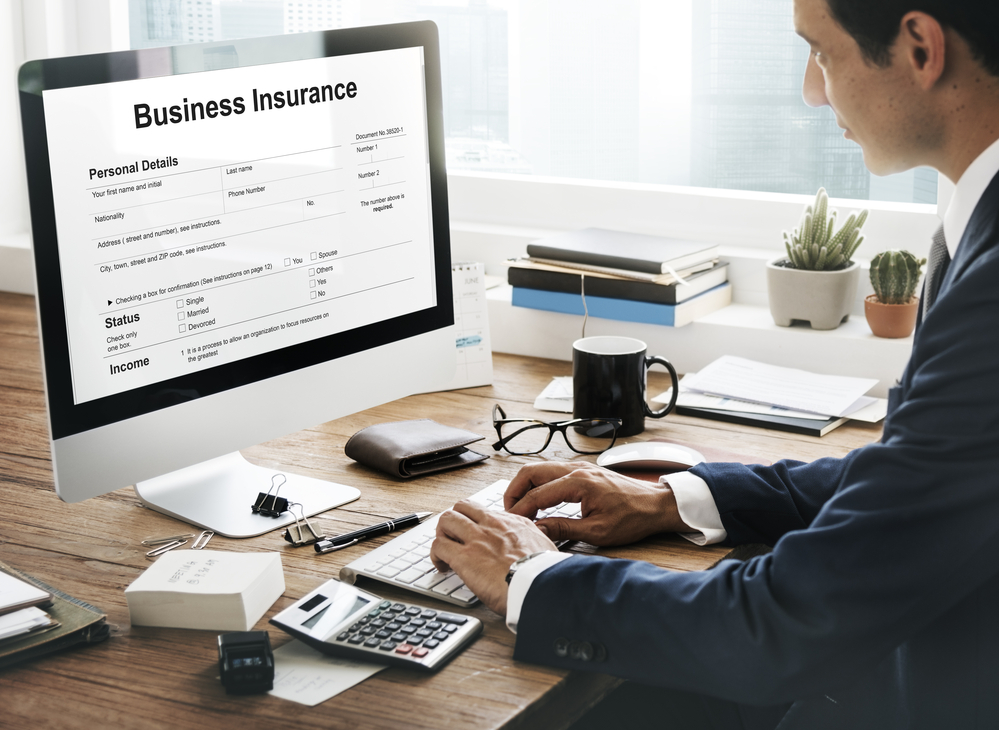You want to protect your business and personal assets as a sole proprietor. What’s one easy way to ensure you’ve taken care of all that?
Get business insurance, which is a type of insurance that offers financial protection from financial losses that may come from accidents, natural disasters, and lawsuits. These perils could tank your business if you don’t have the right policy.
What is a sole proprietorship?
A sole proprietorship means that a business owner is not part of a limited liability company (LLC) or a corporation — you own an unincorporated business alone. As a sole proprietor, you are responsible for the business’s assets, liabilities, and debts.
You may wonder, “Can a sole proprietor get business insurance?” or “Do I need insurance for a sole proprietorship?
The answer to both questions: Absolutely, and it’s important that you seriously consider protecting your business.
Factors to Consider Before Getting Business Insurance for Sole Proprietors
Before obtaining business insurance as a sole proprietor, there are several crucial factors you should carefully consider. Each of these factors plays a significant role in determining the type and extent of coverage your business requires. Here’s a breakdown of these essential considerations:
Business Risks
What kinds of risks does your business face? For example, if a client visits your workplace, someone may get hurt and have medical bills. If there is potential for your property to get damaged by a client or you use advertising for marketing your company, you have business risks that business insurance can cover. You may need liability insurance if you use third-party locations for your business activities or need coverage on specific contracts.
Decide Which Policies to Cover
What kind of insurance is best for business insurance for sole proprietors? General liability insurance protects you if someone files a lawsuit, claiming that you damaged their property, injured them, or their reputation. Take a look at a few others:
- Errors and omissions (E&O) insurance: E&O insurance can cover employers and employees if a client claims you’ve been negligent or did inadequate work for the client.
- Commercial property insurance: Commercial property insurance can help protect your company from perils and natural disasters such as fire, storms, theft, and vandalism. However, you likely must purchase earthquake and flood insurance separately rather than find it under a sole proprietor liability insurance policy.
- Business interruption insurance: If your business must stop running due to a covered loss, business interruption insurance can cover your lost income and extra expenses.
- Commercial auto insurance: Similar to a personal car insurance policy, a commercial auto insurance policy covers work vehicles like delivery vans and trucks.
- Cyber liability insurance: Cyber liability insurance can protect businesses from internet risks, such as a data breach or malicious software attack.
- Workers’ compensation insurance: Workers’ compensation provides medical and wage benefits for individuals who get hurt or become ill due to their jobs.
Learn more about the best general liability insurance available and more common types of business insurance.
Compare the Sole Proprietor Business Insurance Providers
Next, compare sole proprietorship insurance providers using the following steps.
Step 1: Put Together a List of Reputable Insurers.
You want to ensure you’re getting the best quotes for small business insurance for sole proprietors, yes, but also from the most reputable carriers in the insurance industry. Before you consider the right insurer for sole proprietors, look into the independent rating that measures the financial strength of each insurer. The highest grade available is an A+-rated carrier.
Step 2: Consider All Aspects of Each Company.
Look beyond the insurance rating of the carrier. Consider the cost of premiums and deductibles, types of policies and coverage options, and customer service. Compare various kinds of business insurance apples to apples (not apples to oranges) to understand what’s covered. Each insurance policy will mention inclusions or exclusions within terms, policy limits (the maximum amount an insurance company will pay for a specific peril), and levels of each type of coverage, so look at these details in depth.
Note that insurance companies have per-occurrence limits and aggregate limits — these mean the highest amount a policy will pay for a single claim and the total paid for all claims in a single period policy, like a year, respectively.
Step 3: Assess Your Needs.
What type of policy do you need? Looking back at the risks your business faces, the types of specific needs, etc. For example, specific contracts may require you to carry a certain level of coverage. Also, consider when you’ll need coverage. You may need coverage right away or may not have to get coverage for six months — the day you plan to open your business.
Remember that your state may require you to get business insurance, similar to how most businesses in each state must buy workers’ compensation insurance as soon as they have an employee. State laws may also require commercial auto insurance if they have vehicles belonging to the business.
Step 4: Get Quotes from the Providers.
Once you’re sure you have the right company on your side, it’s time to purchase your insurance coverage. You can get a quote online, by phone, or through an insurance agent. An insurance agent is a licensed individual who can review your coverage options and quote you.
It’s worth shopping for business insurance through several different agents or asking an independent agent for quotes from many companies. An independent agent can give you an idea of a wide variety of companies, coverage options, customer service, premium costs, factors affecting your insurance rates, deductibles (the amount you’d pay before your insurance kicks in), and other factors.
Step 5: Purchase the Right Insurance for You.
Finally, purchase the right insurance for your needs. Your insurer will give you more information about your payment options and how often you’ll make payments. Get all your questions answered before you hit the “buy” button.
Conclusion
How do you know you’re getting the best small business insurance for sole proprietors? Consider all aspects of your business before making the right decision. An insurance agent can help you get the right business insurance for your sole proprietorship — don’t be afraid to use an agent to help you, rather than shopping online exclusively.
FAQs
Why is unlimited personal liability the biggest disadvantage of a sole proprietorship?
Unlimited personal liability has to do with the amount of responsibility business owners have for their business — they take full legal responsibility for all company debts. In other words, there’s no difference or distinction between personal and business assets. For example, you could risk your personal assets when you’re found liable when a client sues you. A claim could be financially devastating for you, both professionally and personally.






